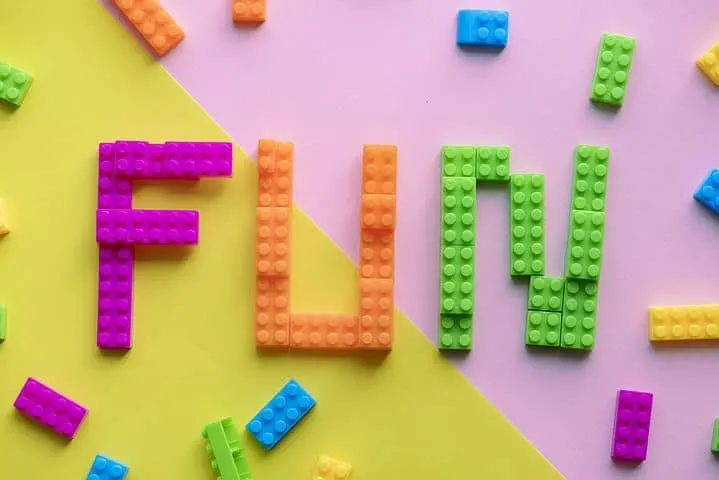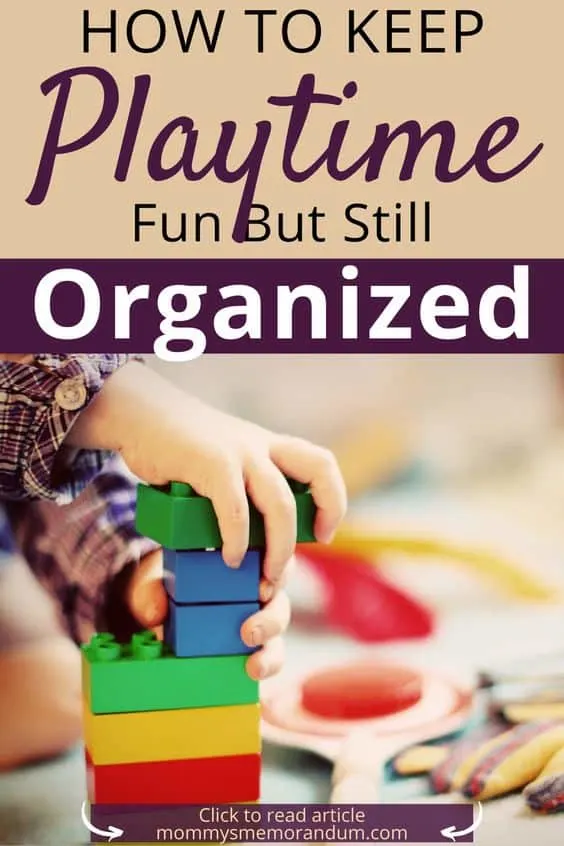All too often, children are overscheduled, which gives them little time for unstructured play.
Studies show that children need time to play without interference from well-meaning adults.
But, parents are often reluctant to give their children completely unstructured play for safety purposes and for organizational purposes, as playtime can become messy.
Fortunately, there are several ways to keep playtime organized, so parents do not have to waste their precious time cleaning up messes.
Parents have better things to do, like spending time with their children, so having organized and fun playtime benefits both parents and children alike.

How to Keep Play Time Fun But Still Organized
Buy playtime organization tools
One way to keep playtime fun and reduce messes is to buy toys that help children stay organized.
Brick Fans says, with the best Lego tables, kids can play and keep the playroom clean without kids even knowing it!
When Legos land on the floor, they are not only messy but painful, too!
But, if children have a Lego table, they can build it on the table and stay off of the floor.
Along with Lego tables, children can keep their playrooms tidy with car cases, dollhouses, and kitchen sets that are not just toys, but give kids places to put their things, too.

Rotate the choices
If you are going to have unstructured playtime, you can create a bit of structure by not keeping all of the toys in the playroom.
If messes are a common thing, why not limit playing options, asks verywellfamily.com.
Once you get your child’s toys organized, you can put some of them away (in a closet) and leave some of them out.
This limits messes.
When you bring out the putaway toys, they seem brand new as they’ve been out of sight in the closet.
Play clean-up games
If you have young children, you can make clean-up time fun by making it into a game.
If you teach your children that cleaning up is a part of playing, you are preparing them for real life.
We cannot leave things out and expect someone else to take care of them, so with games, kids learn that tidying toys isn’t really that bad.
Put away toys to music and come up with fun dances.
Use a timer and race to beat the previous day’s speed.
Pick a set number of items children need to pick up to make it manageable and teach counting skills.
There are plenty of ideas out there, and you just have to use them.
Set chores chart
Children of all ages benefit from learning responsibility.
By creating age-appropriate chores (WebMD), children learn to take care of their things and their home.
If playtime is so messy that it becomes overwhelming, creating a chores chart for the playroom can reduce the stress that comes after unstructured playtime.
Children can be responsible for putting away things that they played with, and they can do it without throwing tantrums.
If your chore chart includes rewards, rather than punishments, your children will learn those good things come from taking care of the playroom.
